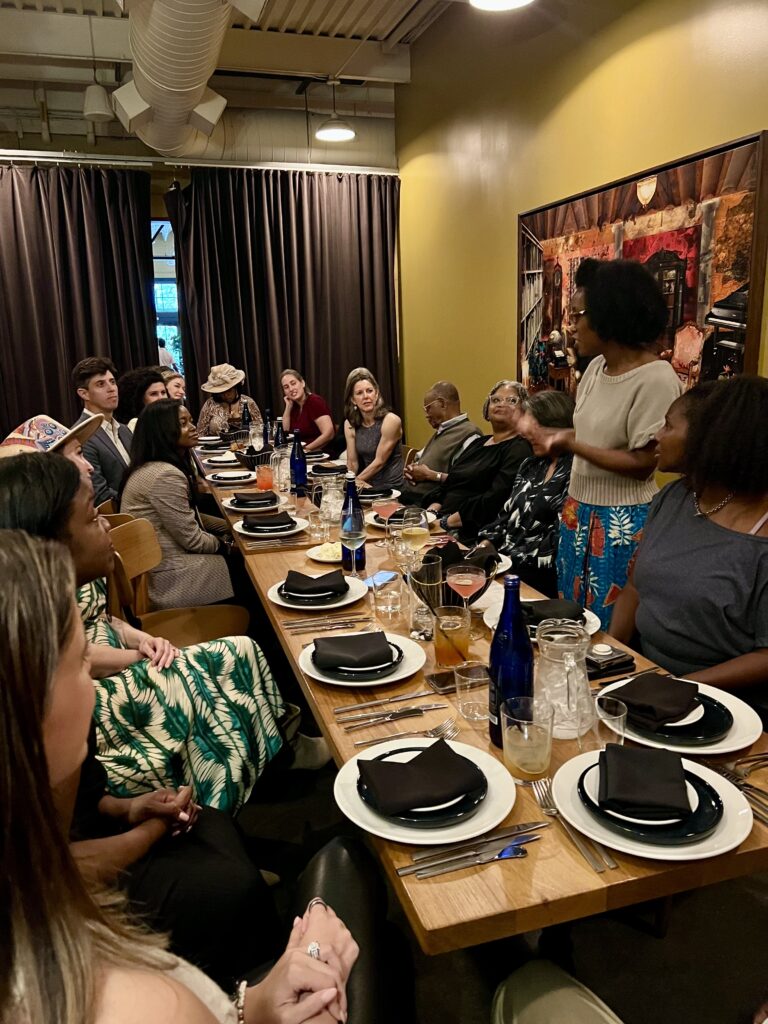Earlier this month, we continued our SAFSF On The Road series in Atlanta, Georgia! A group of 27 SAFSF members, diverse capital partners, community advocates, and local nonprofit leaders joined us for an evening dinner, complete with Southern cuisine from Marcus Bar + Grille and a discussion with food justice advocates.
Since early 2024, SAFSF has convened a cohort of funders and leaders at the USDA Natural Resources Conservation Service (NRCS) to explore ways to unlock more investment for historically underserved producers and communities in the South, a critical region to catalyze food systems change. What started as an avenue to mobilize NRCS dollars has transitioned to catalyzing funders toward deeper commitment to the South, informed and led by perspectives and in conversation with community-based organizations. Two of our partners in this pilot project, the Southwest Georgia Project and the Rural Studies Institute at Georgia College & State University, elevated why Southwest Georgia deserves funder attention during our dinner together.


Attendees learned from Dr. Veronica Womack, an acclaimed researcher of the Southern Black Belt region and the inaugural Executive Director of the Rural Studies Institute at Georgia College, about the complexity and extraordinary possibilities of the Southwest Georgia Black Belt, a region often narrowed to a ‘single narrative’ of hardship and poverty that degrades the power and vibrancy of community and culture.
We also heard from Amber M. Bell, director of the Southwest Georgia Project and President and CEO of Bell and Co. Consulting, LLC, who made the case for public-private investment in resilient food systems infrastructure – including the Southwest Georgia Regional Food Hub impacted by loss of federal funding and EPA investments – in Southwest Georgia and beyond that supports Black farmers, their supply chain partners, and the communities they serve statewide.
Both Dr. Veronica and Amber shared reflections on the lasting impact of historic and continued systemic disinvestment in farms and communities in the region, and the need for local infrastructure that supports farmers and the network around them for off-farm monetization opportunities like farm-to-table restaurants, institutions, and good food procurement.
To disrupt the current system, funding structures need to be long-term, consistent, thoughtful, accessible, and unified, with emphasis on rural communities. Dr. Veronica reminded us that the story of agriculture is not told without the story of Black farmers – past, present and future.
SAFSF continues to build partnerships in the region; stay tuned for future plans for regional programming.